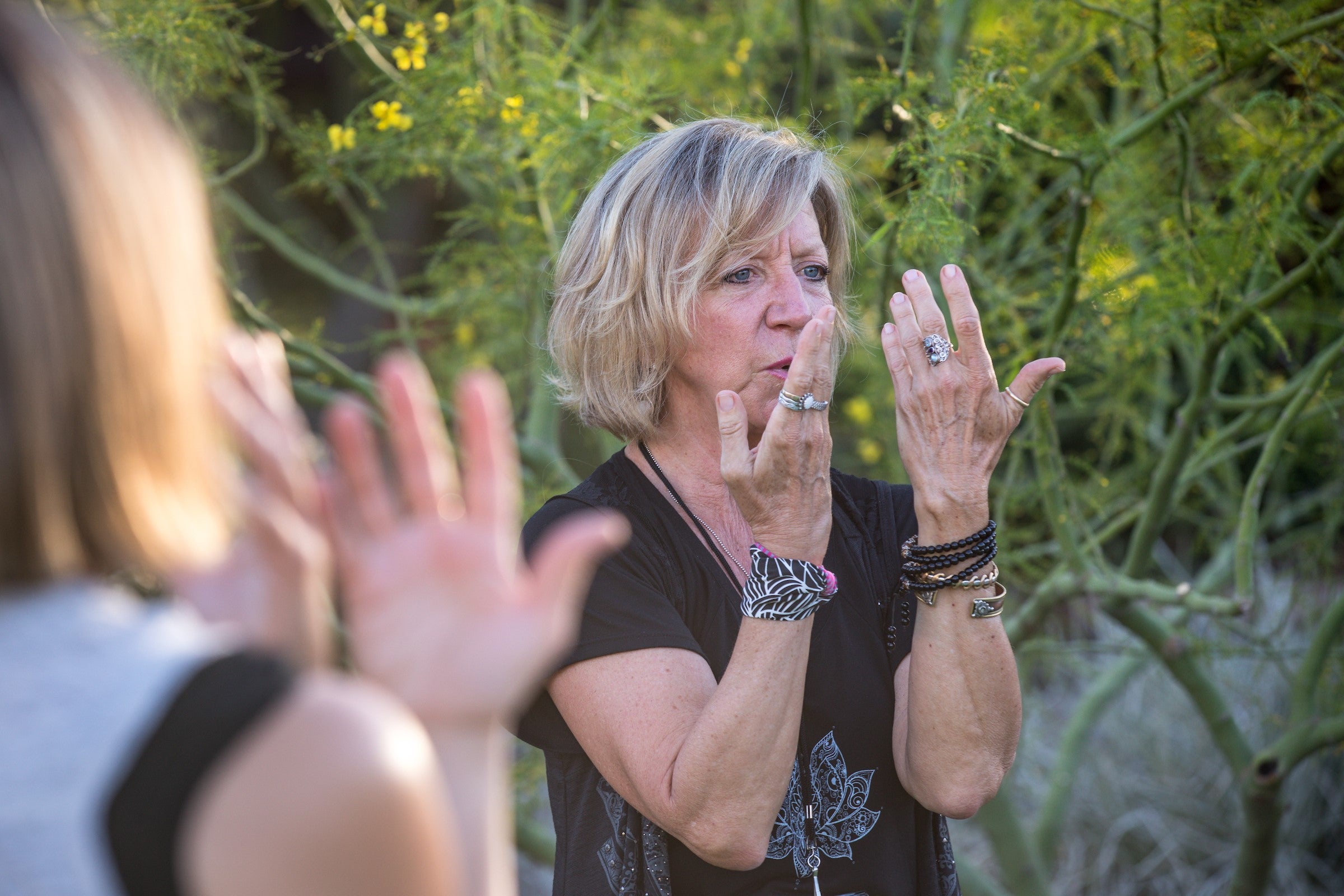The American Cancer Society estimates that about 250,000 women in the United States will be diagnosed with breast cancer this year. They will join the approximately 3.1 million breast-cancer survivors who have completed treatment or are still undergoing it. Thanks to early detection and improved treatment options, the survival rate continues to increase year after year.
Breast-cancer survivors can experience symptoms long after their treatment has ended, such as fatigue, depression, weight gain, anxiety, cognitive dysfunction, pain and sleep disorders. Linda Larkey, a professor in Arizona State University's College of Nursing and Health Innovation, says practicing mindfulness activities such as qigong and tai chiQigong and tai chi are Chinese exercise systems that use slow, smooth body movements and controlled breath to achieve a state of relaxation in the body and mind. can help to relieve these symptoms and contribute to a higher overall quality of life.
Question: What is mindfulness, and what benefits does it bring to those who practice it?
Answer: I have a two-fold definition for mindfulness. First, mindfulness is presence in the current moment and awareness of inner and outer environments. These environments occupy our thinking and fill up our senses. Focusing on the present moment has a way of taking one out of the chaos and skirmishes of daily ups and downs. It calls for us to stop, be quiet, take notice and be.
The second definition for mindfulness is only slightly broader than the first, and it incorporates awareness and movement of the body. This is an embodied form of mindfulness, often centered in the heart.
Mindful or meditative movement is particularly impactful for those with an active mind/being. Engagement of all the senses, the experience of movement in the context of being present in the moment, and the rhythm of the breath create an encompassing, powerful experience.

Linda Larkey, professor and certified Tai Chi Easy and qigong instructor, leads a group in the practice of tai chi at the Desert Botanical Garden. Photo by Charlie Leight/ASU Now
Q: How does meditative movement, including qigong and tai chi, help to alleviate the symptoms breast-cancer survivors experience post-treatment? What are the physical and psychological benefits of these activities?
A: The body’s usual responses to stress — an overactive mind, emotional distress, clenching of muscles, shortening the breath — all change in response to the practice of meditative movement. These changes allow the body to do what it does best, which is to make its own medicine, a natural result of calming the mind, deepening the breath and relaxing the muscles during gentle movement. During the practices of qigong and tai chi, the biochemicals that support health and immune function increase, while the biochemicals that produce inflammation, pain and depression/anxiety are lessened.
Some call it the “relaxation response,” but I think it is more than that. There are emotionally soothing, joy-building aspects to these practices that bring a lovely rhythm of the heart associated with healing the mind, body and relationships.
Q: Your research on meditative movement has shown that practicing these types of activities on a regular basis can improve a person’s mental and physical well-being. How are your findings impacting traditional health-care options for breast-cancer survivors? Are physicians incorporating mindfulness into their repertoire of treatment options?
A: My research is a mere drop in the bucket, but every study that demonstrates the physical and psychological benefits of dedicated mindfulness practice is another note in the many orchestrations of evidence that are getting the attention of physicians. Most cancer centers now have integrative medicine as part of their therapy — if they don’t, they are falling behind. Twenty years ago, meditative movement like yoga and tai chi were mostly sought out only by patients themselves in limited numbers and contexts. Now, referrals from health-care professionals to such practices is the norm rather than the exception.
Top photo courtesy of Pixabay
More Health and medicine

The science of sibling dynamics: Why we fight, how we relate and why it matters
We have Mother’s Day, Father’s Day and even Grandparents’ Day. But siblings? Usually they get a hand-me-down sweatshirt and, with any luck, a lifetime of inside jokes.But actually, there is a…

New study seeks to combat national kidney shortage, improve availability for organ transplants
Chronic kidney disease affects one in seven adults in the United States. For two in 1,000 Americans, this disease will advance to kidney failure.End-stage renal failure has two primary…

New initiative aims to make nursing degrees more accessible
Isabella Koklys is graduating in December, so she won’t be one of the students using the Edson College of Nursing and Health Innovation's mobile simulation unit that was launched Wednesday at Arizona…


